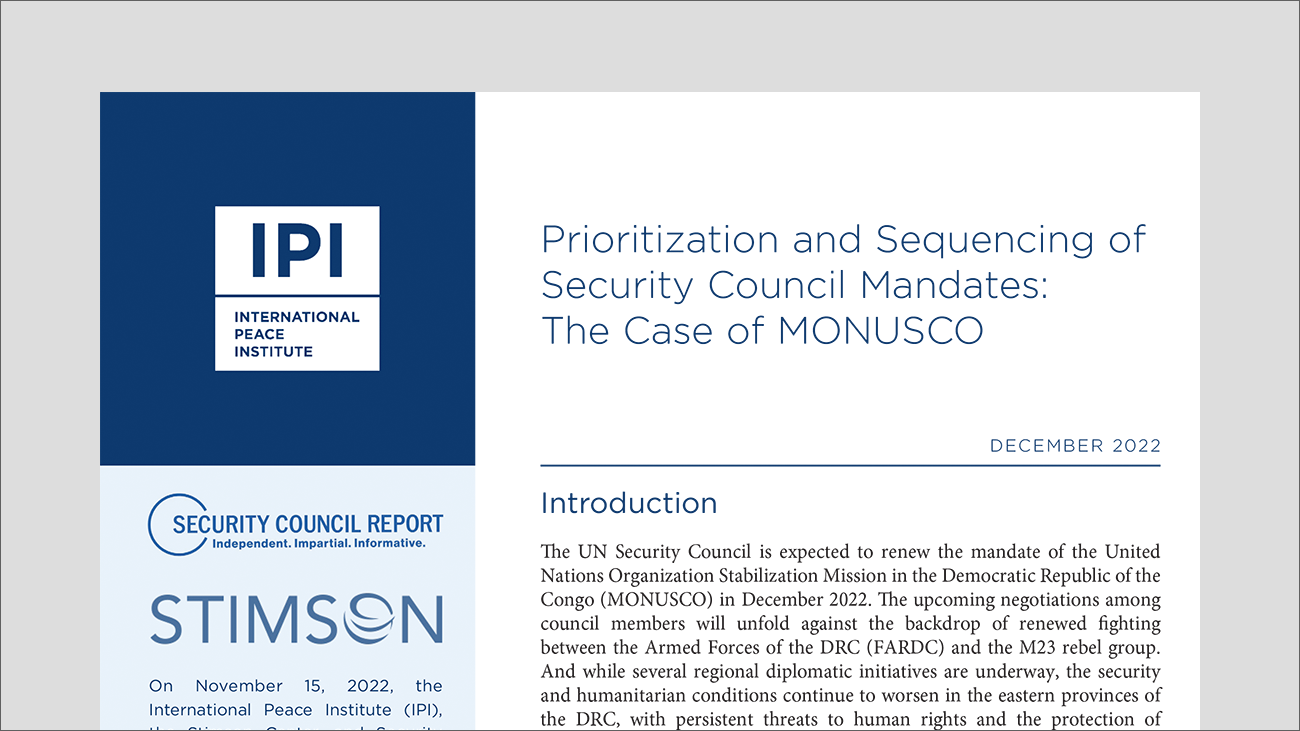
The UN Security Council is expected to renew the mandate of the United Nations Organization Stabilization Mission in the Democratic Republic of the Congo (MONUSCO) in December 2022. The upcoming negotiations among council members will unfold against the backdrop of renewed fighting between the Armed Forces of the DRC (FARDC) and the M23 rebel group. And while several regional diplomatic initiatives are underway, the security and humanitarian conditions continue to worsen in the eastern provinces of the DRC, with persistent threats to human rights and the protection of civilians.
In this context, the International Peace Institute (IPI), Security Council Report, and the Stimson Center co-hosted a roundtable discussion on November 15, 2022. This roundtable offered a platform for member states, UN officials, civil society stakeholders, and independent experts to share their assessments of the situation in the DRC in a frank and collaborative manner. The discussion was intended to help the Security Council make more informed decisions with respect to the prioritization and sequencing of MONUSCO’s mandate and the mission’s strategic orientation and actions on the ground.
Participants agreed that MONUSCO’s strategic vision and priority tasks are still relevant to the UN’s overall engagement in the country. They also emphasized that the current mandate provides the mission with appropriate guidance to pursue the strategic direction provided by the Security Council, but some areas need to be refined for the mission to better address the ongoing crisis and new priorities. The mission will likely need to balance the following issues over the next mandate cycle:
- Strengthening MONUSCO’s capabilities to conduct proactive, robust, and mobile protection efforts in eastern DRC;
- Bridging the expectations gap on the protection of civilians by communicating what MONUSCO can achieve under its mandate as well as the limits of MONUSCO’s partnership with the FARDC;
- Establishing a constructive dialogue between MONUSCO and the East African Community’s regional force to deconflict and coordinate operations on the ground while encouraging compliance with international humanitarian law and international human rights law;
- Supporting the government’s efforts to build national capacity to implement its Demobilization, Disarmament, Community Recovery and Stabilization Program (P-DDRCS);
- Capitalizing on its good offices to coordinate and harmonize the Luanda and Nairobi processes;
- Expanding civic engagement in the formal political process and making the process more inclusive; and
- Working with regional partners to lay the groundwork for balanced bilateral agreements fostering long-term sustainable economic cooperation.







